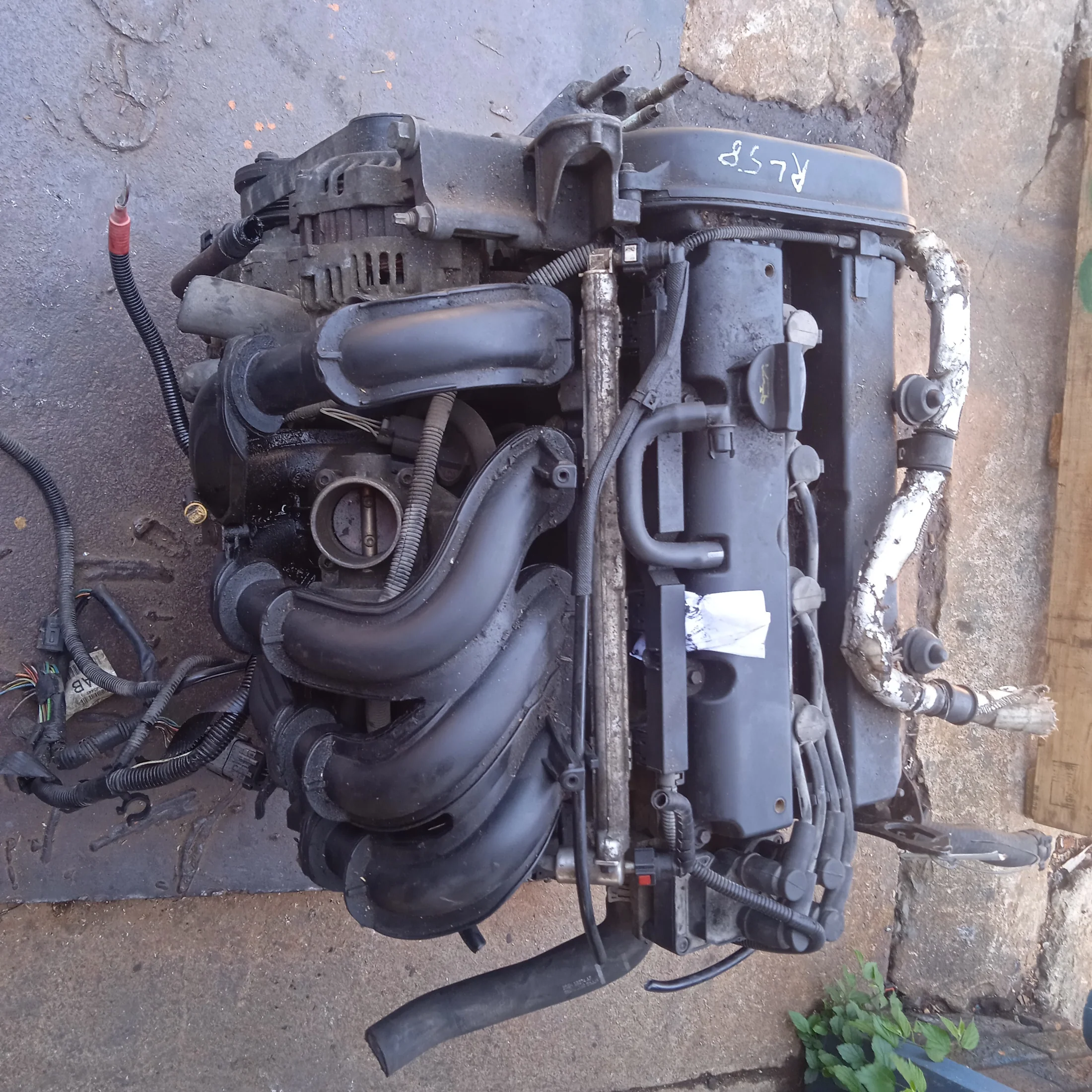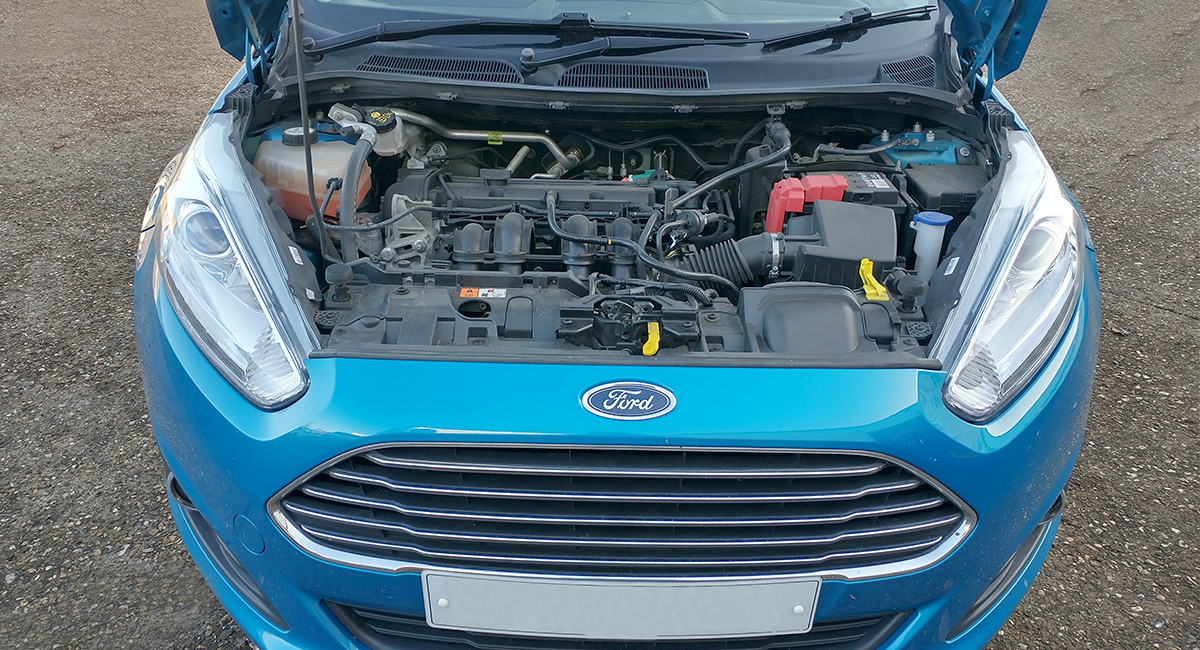Exploring the Benefits of a High-Performance Ford Fiesta Engine
Exploring the Benefits of a High-Performance Ford Fiesta Engine
Blog Article
The Future of Engines: Developments Driving Sustainable Power Solutions
As the automotive industry navigates the necessary shift towards sustainability, the future of engines is significantly defined by groundbreaking advancements. Electric engine advancements, together with encouraging advancements in hydrogen gas cells and biofuels, are improving the landscape of power services.
Electric Engine Dope
The advancement of electrical engine developments represents a pivotal change in the auto and aerospace sectors, driven by the urgent requirement for lasting alternatives to nonrenewable fuel sources. This change is characterized by significant developments in battery modern technology, power electronic devices, and electric motor layout, which jointly improve the efficiency and performance of electrical engines.
Recent advancements have led to the production of lighter, more energy-dense batteries, such as lithium-silicon and solid-state batteries, which guarantee longer varieties and shorter charging times. In addition, enhancements in electrical motor efficiency, such as making use of long-term magnets and advanced cooling systems, enable electrical engines to operate successfully under varying problems. These enhancements not just improve car efficiency however also add to a decrease in overall power consumption.
Moreover, the assimilation of advanced software algorithms has maximized energy management in electric lorries, permitting regenerative stopping and anticipating charging techniques. As suppliers progressively welcome electric propulsion, the aerospace and automobile markets are seeing a standard shift in the direction of greener modern technologies. This evolution not only fulfills regulatory needs yet additionally straightens with consumer choices for eco-friendly transportation remedies, solidifying electric engines as a cornerstone of future lasting movement.
Developments in Biofuels
As the automobile and aerospace markets significantly prioritize lasting energy resources, developments in biofuels become a corresponding remedy to electric engines. Biofuels, stemmed from organic materials such as plants, waste, and algae, present a cutting-edge method for reducing greenhouse gas emissions and reliance on fossil gas.
Recent research study has concentrated on boosting the efficiency and sustainability of biofuel production. Second-generation biofuels make use of non-food feedstocks, minimizing competition with food supply and minimizing ecological influence. Improvements in synthetic biology have actually enabled the design of microorganisms to produce biofuels much more successfully, leading to higher yields and reduced manufacturing expenses.
Furthermore, the advancement of drop-in biofuels enables smooth integration right into existing framework, enabling a smoother transition for industries commonly depending on nonrenewable fuel sources. ford fiesta engine. These gas can be utilized in existing engines without modifications, promoting their adoption across different industries
Investments in biofuel innovation, together with encouraging policies, are important to drive development and scalability. As the global community seeks to battle climate adjustment, biofuels provide a practical, instant remedy that aligns with the overarching objective of sustainability in transport and aeronautics.
Hydrogen Fuel Cell Technology
A growing variety of scientists and companies are exploring hydrogen fuel cell modern technology as a feasible alternative to traditional source of power in transportation and power systems. This modern technology transforms chemical power from hydrogen into electrical power through an electrochemical response, with water as the only byproduct, making it an eco-friendly alternative.
The core of hydrogen fuel cells is the fuel cell stack, where hydrogen particles are divided right into protons and electrons. The circulation of electrons creates electricity, while protons relocate via a membrane layer to combine with oxygen from the air, forming water. This process causes high efficiency and reduced emissions, positioning hydrogen gas cells as a critical player in the shift to lasting power.
Substantial advancements have been made in improving the longevity and performance of gas cells, together with lowering costs with cutting-edge production strategies. Furthermore, the growth of hydrogen manufacturing methods, such as electrolysis powered by renewable resource sources, enhances the sustainability of the overall system. As infrastructure for hydrogen refueling expands and manufacturing techniques end up being much more effective, hydrogen gas More hints cell modern technology holds fantastic guarantee for decarbonizing different sectors, including durable transport and stationary power generation.
Crossbreed Solutions and Their Effect
Hybrid systems stand for a significant evolution in sustainable engine modern technology, merging standard internal burning engines with electric propulsion to maximize power efficiency and decrease emissions (ford fiesta engine). This dual technique enables lorries to make use of both source of power, allowing greater flexibility in power consumption and decreasing reliance on nonrenewable fuel sources

Along with ecological advantages, crossbreed systems supply customers a feasible transition in the direction of fully electrical vehicles. They alleviate range stress and anxiety by combining the convenience of gasoline with the benefits of electric propulsion, making them an attractive choice for a broader audience. As manufacturers buy hybrid modern technology, the advancement of advanced battery systems and light-weight materials remains to improve performance. Overall, crossbreed systems represent a crucial action in the direction of attaining sustainable transport and dealing with the urgent demand for ecologically friendly power services.
The Function of AI in Engine Style
Leveraging sophisticated formulas and machine knowing techniques, the vehicle market is increasingly integrating expert system (AI) into engine layout processes. AI enhances the effectiveness and performance of style by examining large datasets to determine ideal configurations and performance criteria. This capacity allows designers to replicate different operating problems and anticipate engine habits under several circumstances, substantially lowering the time and price connected with conventional prototyping approaches.
In addition, AI promotes the advancement of sophisticated products news and burning processes tailored for sustainability. By enhancing gas efficiency and lessening emissions, AI-driven designs line up with worldwide efforts targeted at decreasing the carbon footprint of automotive engines. Artificial intelligence formulas can also anticipate maintenance demands, leading to improved dependability and long life of engine parts.
Moreover, AI is crucial in the combination of electrification technologies, such as crossbreed systems, where it can enhance battery management and energy recovery processes. As the sector relocates in the direction of more lasting power solutions, the find out here now function of AI in engine layout becomes significantly important, driving innovation and enhancing the efficiency of future engines. Eventually, the partnership between AI and engine style proclaims a new era of smarter, cleaner, and more efficient vehicle innovations.

Conclusion
Finally, the future of engines is being shaped by a convergence of innovative technologies that focus on sustainability. Electric engine developments, biofuel developments, hydrogen gas cells, and crossbreed systems jointly contribute to a significant reduction in emissions and environmental impact. Additionally, the combination of expert system in engine style boosts performance and performance. These transformative options emphasize a dedication to creating a cleaner, much more sustainable automotive landscape, eventually profiting both culture and the atmosphere.
Electric engine developments, alongside encouraging growths in hydrogen fuel cells and biofuels, are reshaping the landscape of power options. In addition, improvements in electric motor efficiency, such as the use of long-term magnets and progressed cooling systems, make it possible for electrical engines to run efficiently under varying conditions. By enhancing fuel efficiency and lessening discharges, AI-driven designs line up with global initiatives intended at decreasing the carbon impact of automotive engines. As the sector relocates towards more sustainable power remedies, the duty of AI in engine design comes to be significantly important, driving development and boosting the performance of future engines. Electric engine developments, biofuel growths, hydrogen fuel cells, and crossbreed systems jointly contribute to a substantial decrease in exhausts and ecological influence.
Report this page